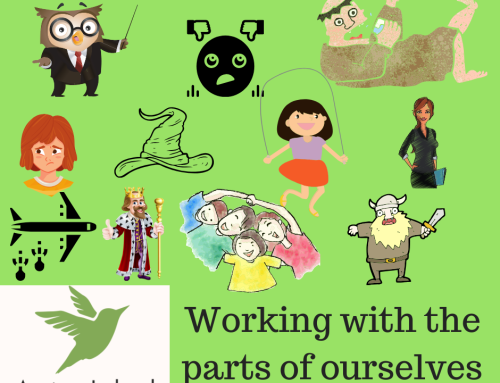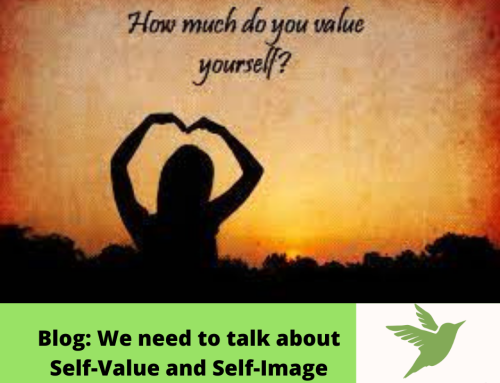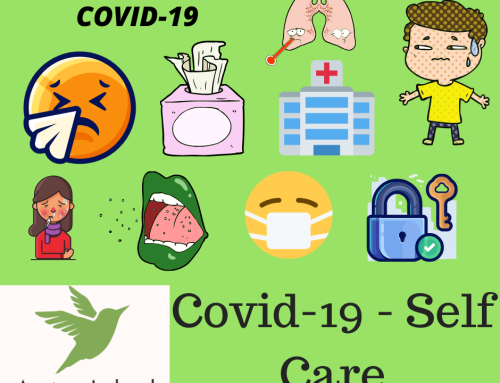For many people romantic relationship anxiety can be one of the most triggering things in life.
Given the pressure to be coupled up, it’s ironic that something many single people strive for can be kryptonite for many of us and make us struggle.
Many people who are never normally anxious in daily life can be so in relationships and this leaves them vulnerable as unusual patterns of negativity set in
Part of this is that in a relationship we share ourselves deeply. Our emotions, our hopes, our bodies and happiness tend to get brought into it with us.
Below in more depth this article will explore: (1) A non-exhaustive list of some ways I’ve seen clients struggle in relationships , (2) how past experiences can be at play in this, (3) how the brain seeks safety (4) how self-esteem may cause relationship problems, (5) how anxious thinking leads to negative emotions, (6) how behaviours seeking reassurance can actually ruin relationships and (7) how therapy might help.
- Some ways we struggle in relationships.
A big presenting issue I see a lot in clinic is that previous insecurities can get activated by new relationships.
By putting so much in (which is a sign that we really like someone) we may feel badly exposed which sends our brain into overdrive sniffing out danger.
Fears and thoughts of abandonment, being betrayed, not being good enough, being alone or worries about being unhappy are incredibly commonplace.
Wondering what our partners think of us, wondering what they are up too and feeling bad when they do things without us are also common.
Many partners struggle with confidence issues, jealousy, anger/irritability, possessiveness, low worth, feeling unlovable, trying to control situation, bouts of sadness/depression or even panic attacks about their relationships.
Issues around trust, opposite sex friends, intimacy, advancing the relationship, moving in together, getting married, having children, or going long distance can also come up.
Many even consider ending good relationships because they can’t handle how they feel about it.
While relationships can be an amazingly fulfilling place, they can turn sour with Romantic Relationship Anxiety because one or both partners fear it unravelling.
- Attachment and past experiences:
Many of us struggle when it comes to anxiety and our romantic relationships because of our past relationships.
One of the most fundamental places where this comes from would be from what psychologists call attachment.
Each of us develop attachment styles with our primary caregivers growing up. These tend to set a pattern within us around how much we like ourselves and trust the world and others.
If we are fortunate enough to have had reasonably consistent parents, then normally we can be said to develop “secure attachment” where in most relationships we can feel comfortable.
However, a lot of us we will develop attachment styles that may also be “avoidant” or “ambivalent” about closeness.
We can also form “disorganized attachment” where we struggle to maintain any close intimate bonds and can end up quite unwell.
These states run very deep but through therapy can be helped and worked on. Romantic relationships bring up all this stuff as even comfort we take from even cuddling and kissing bring us into a vulnerability that’s quite childlike.
Likewise, those who suffered child abuse or sexual abuse at any stage can experience severe anxiety in relationships or around intimacy.
Another area where we can struggle even if we’ve had good attachment from our caregivers is if we’ve been hurt in the past in romance.
This would mean if we have been let down by others, cheated on, had our confidence betrayed, been manipulated/gas-lighted, broken up with unkindly or if we have never been given closure.
The past conditions our brains to need to keep us safe in the present even when danger may not clearly be present.
- The need to feel safe:
The reason we can get anxious about these things is that humans have an innate ability to notice danger and to avoid it.
Our survival instincts include the need to feel safe from emotional pain and not let bad things happen over again.
The amygdala is the part of the brain primarily responsible for the threat response centre. As one of the oldest parts developmentally it often isn’t very logical but black and white about potential risks (always worst case scenario).
Stemming from childhood wounds including parents leaving, being inconsistent or not caring we may develop an overactive amygdala and defence mechanisms.
Just like a soldier can develop PTSD from war, or someone in a traumatic accident can subsequently feel nervous in similar situations we can also become fearful in relationships.
These unconscious and automatic defences will not want us to be hurt again, rejected, seem stupid in front of our partner, be perceived as not attractive or to be caught unsuspecting.
Deep down when we have been hurt, we want to feel we can trust our partners deeply… but niggling anxiety may always creep in and cause issues for us that get acted out.
When we don’t know our vulnerabilities, we can’t properly see the wood from the trees or see our anxious minds part in creating the problems.
This means that Romantic Relationship Anxiety causes incidents to repeat themselves and ordinary things get transformed into negatives.
- Self-Esteem and liking ourselves
Insecurities such as not liking our-selves, or parts of ourselves deep down can also enter into relationships.
When we wonder “why are they even with me”; when we feel “they won’t like the real me when they get to know me”, or when we constantly are thinking “when are they going to leave” it comes out in our emotions and our behaviours.
Not liking ourselves enough can also mean we put the keys our self-esteem onto the other partner and expect them to make us feel good about ourselves.
Doubts about our worth, looks, lovability or strengths can mean we mind read or worry about what our partners think of us, how we come across to them or how their friends/family/colleagues see us.
This can then mean we overcompensate, avoid situations or feel unnatural around them when in fact the most likely thing is that they do like us because they are with us!
We all preoccupy our selves about our worst features, and we don’t see ourselves as others see us. This blindsided-ness/view of self-infects our thinking and can make our relationships not feel safe.
- Anxious thinking causing: Jealousy/Fear/Anger
As above anxiety and fear trick our brain into worst case scenario thinking as it is a way of keeping ourselves safe.
We mightn’t realize we are doing this, but we can think in highly negative ways that lead to a plethora of emotions and emotional reasoning.
A classic symptom of anxious thinking may be about what a partner could be up to, this can bring up anger or jealousy created purely by our thoughts.
Jealousy is often the fear of being left, abandoned or made a fool of and with anxious thinking these threats may appear where they are not.
Anger can be another emotion that I see a lot in working with partners who are anxious.
Anger can come up through distorted thinking and finding that partners are being inconsiderate or that they should have known our needs better.
Of course, at many times a partner or someone does the opposite of what they said they might do which is frustrating.
However, with anxiety we can end up annoyed at our partners and picking fights even though we haven’t communicated our wishes/preferences to them.
Another type of anger can come up when we feel threatened that someone isn’t prioritising us enough or doesn’t care.
Now I must carefully note that while any of these emotions can be reflective of reality and while we can have reason to be worried about the path of our relationship: sometimes anxiety creates problems where there are none.
Like all emotions they are only temporary, but our red flag can be if the same thoughts and emotions come up again and again without strong evidence.
If this is the case it may be time to look at our anxious thinking
- Self-fulfilling Prophecy Behaviours:
Like a self-fulfilling prophecy anxiety can often bring it about what we most fear. Behaviours like seeking constant reassurance, behaving jealously, snooping, complaining and passive aggression erode the good feelings that make relationships work.
Deep down there are insecurities, but on the surface, these can look like and be experienced as anger, controlling behaviour, neediness, selfishness and power games.
In any relationship if we go in expecting our partner to figure all this out for us, we are asking the impossible.
No one will be able to read our minds just like we can’t read theirs. We must communicate.
It takes two to tango but first we may need to look at our own stuff and work out how can we be less anxious and reactive and then involve a partner to help.
Seeking reassurance, being controlling in situations, getting overly emotional, becoming jealous or picking fights can seem like ugly parts of ourselves coming out.
But these behaviours are coping strategies for avoiding our worst fears and insecurities.
Having these fears and insecurities is normal, yet by not knowing how to control them and by acting them out we can damage the relationships in which we put so much importance.
This can start subtly but build and build and we can even start blaming and hating ourselves.
Getting assistance:
Being controlling or non-trusting pushes people away and are terrible for relationships, but people with anxiety often don’t do this sort of things on purpose!
As a therapist and the manager of Anxiety Ireland I help loads of partners to work on their Romantic Relationship Anxiety and through practical therapy give them ways to manage their anxiety and reinvest in their relationship in healthy ways.
Using psychoeducation, CBT and supportive counselling I work a lot with people who are having issues in their relationships with trust, insecurities, low worth, panic, and avoidance.
More and more this is an issue coming up in clinic and I am always delighted to chat about how therapy can help.
If someone reading this got this far then perhaps anxiety not badness is causing issues in a relationship?
To hear more about how I work with clients on Romantic Relationship Anxiety from my practice on the north side of Dublin feel free to message the Facebook page, email: info@anxietyireland.ie, or call/text me on 087 063 0948.
If someone wants badly enough to change what isn’t working, then they always can with the right guidance!
If this was useful please like, comment and share.
Thanks for reading.
Michael
087 063 0948
Anxiety is like a merry-go-round, going nowhere, it’s ok to step off!




